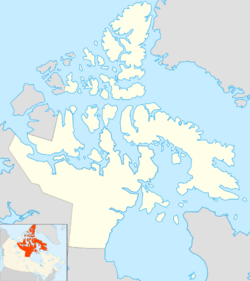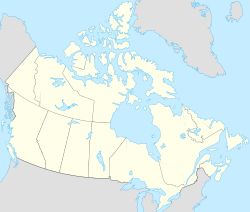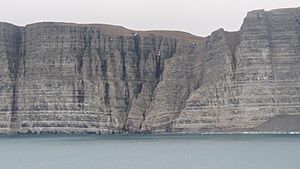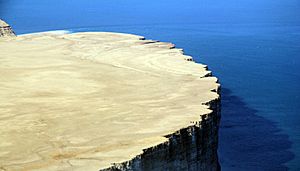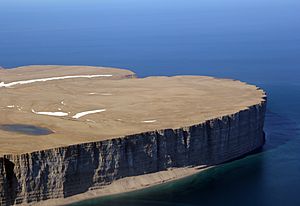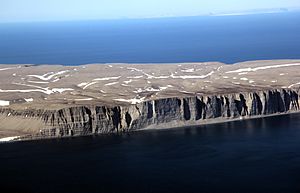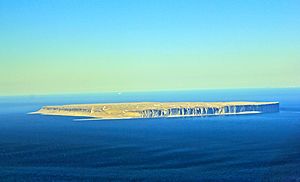Prince Leopold Island facts for kids
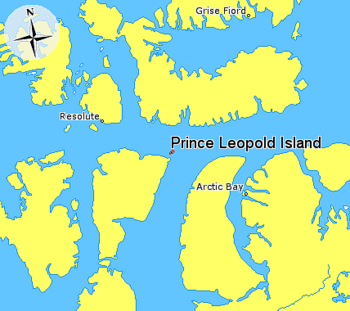
Prince Leopold Island in relation to Grise Fiord, Resolute, and Arctic Bay.
|
|
| Geography | |
|---|---|
| Location | Northern Canada |
| Coordinates | 74°N 090°W / 74°N 90°W |
| Archipelago | Canadian Arctic Archipelago |
| Area | 63.76 km2 (24.62 sq mi) |
| Highest elevation | 265 m (869 ft) |
| Administration | |
|
Canada
|
|
| Nunavut | Nunavut |
| Region | Qikiqtaaluk |
| Demographics | |
| Population | Uninhabited |
Prince Leopold Island is a special island in Nunavut, Canada. It's located in the Arctic region, where the Lancaster Sound meets Prince Regent Inlet and Barrow Strait. The island is quite close to Somerset Island, which is about 13 kilometers (8 miles) away. No people live on Prince Leopold Island, but it's a very important home for many birds.
Contents
How the Island Got Its Name
The island was first explored and named in 1819 by a famous explorer named William Edward Parry. He called it "Prince Leopold's Isles" to honor Prince Leopold of Saxe-Coburg-Saalfeld. This Prince Leopold later became King Leopold I of Belgium. He was also an uncle and advisor to the future Queen Victoria of the United Kingdom.
Island Geography
Prince Leopold Island has an oval shape. It stretches about 14 kilometers (8.7 miles) from east to west and 8 kilometers (5 miles) from north to south. The island also has cliffs, which are very important for the birds that live there.
A Special Place for Birds
Prince Leopold Island is a very important place for birds in Canada. It's known as a Canadian Important Bird Area, which means it's recognized as a key spot for bird populations. It's also a special migratory bird sanctuary protected by the government. This means birds can rest and breed here safely. It's also called a "Key Migratory Bird Terrestrial Habitat site."
Amazing Island Animals
Many different kinds of seabirds come to Prince Leopold Island to have their babies. Huge numbers of birds like thick-billed murres, northern fulmars, and black-legged kittiwakes build their nests on the high cliff ledges. They usually arrive around May or early June and leave by mid-September.
This island is the most important place in the Canadian Arctic for seabirds to breed. More birds of more different types come here than to any other spot. Scientists have studied these birds a lot, especially between 1975 and 1977, and in many years since. Their research helps us understand how the ice conditions in the Arctic affect these amazing breeding birds.
Images for kids
 | William M. Jackson |
 | Juan E. Gilbert |
 | Neil deGrasse Tyson |


